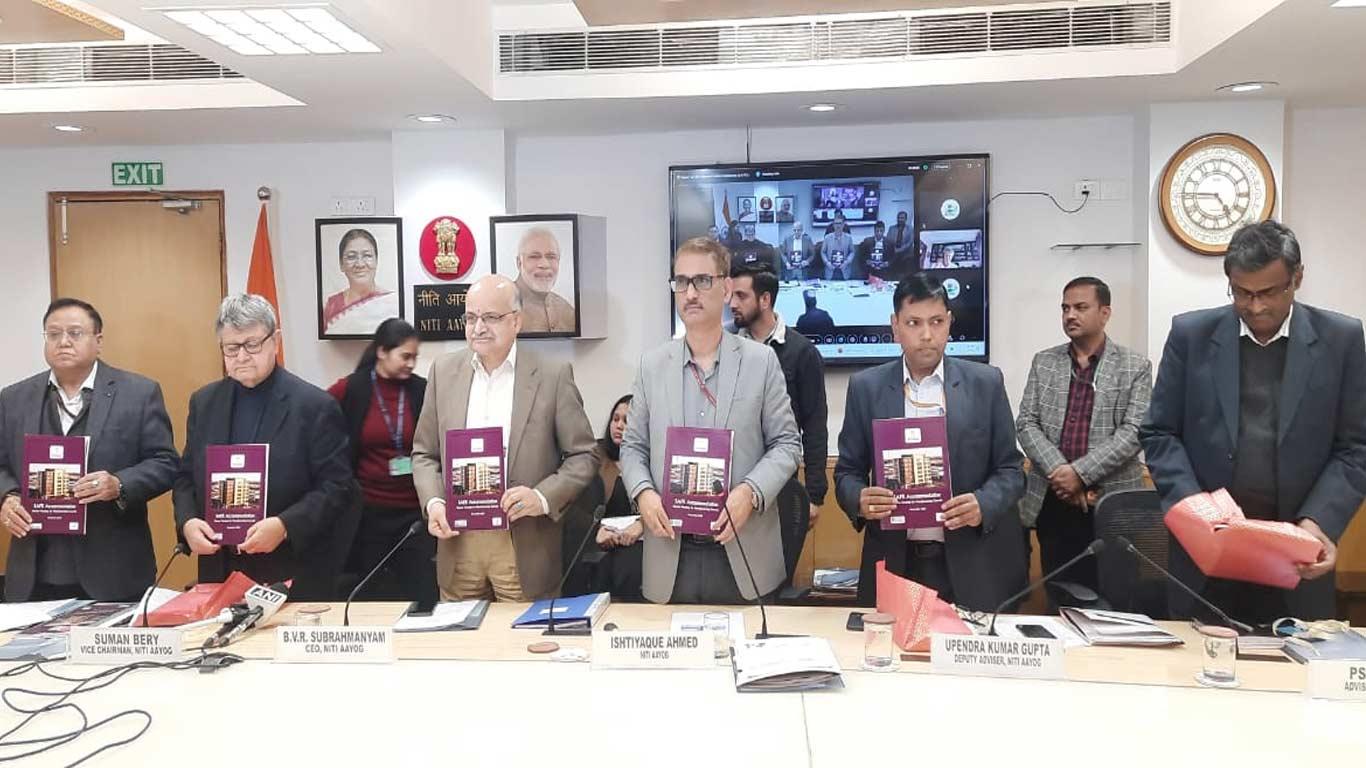
India Needs 25 Million Worker Beds By 2034 To Drive Manufacturing Growth: NITI Aayog
The comprehensive study highlights the pressing demand for secure, affordable, flexible, and efficient (S.A.F.E.) accommodations to support the sector's ambitious growth trajectory.
NITI Aayog Vice Chairman Suman Bery emphasised the pivotal role of women workers in achieving India's manufacturing aspirations, drawing parallels with China's economic success.
"We all know that much of China's success in becoming the factory of the world was driven by the mobilisation of young women," Bery stated, underlining that safe and conducive working and living conditions for women contribute significantly to their economic well-being and support India's vision of achieving Viksit Bharat by 2047.
The report reveals a significant affordability gap in worker housing, with employees willing to spend only 20 percent of their wages on rent, approximately Rs 2,000 monthly.
However, current formal accommodations in industrial areas command nearly double that amount at Rs 4,000 per month.
This disparity becomes particularly concerning as India anticipates 50 million new job seekers entering the workforce over the next five years, with many heading to the manufacturing sector.
Several regulatory challenges impede the development of adequate worker housing, according to the report. Current frameworks restrict residential housing near industrial areas, forcing workers into lengthy commutes.
The classification of hostel accommodations as commercial establishments results in higher property taxes and utility costs, while insufficient housing options for women workers hamper workforce diversity and growth potential.
To address these challenges, NITI Aayog proposes a comprehensive solution including Viability Gap Funding (VGF) of up to 40 percent of project costs, shared between central and state governments.
The report advocates for public-private partnerships to develop cost-effective housing solutions, aligning with the Union Budget 2024-25's emphasis on dormitory-style rental housing under a PPP model.
These initiatives support India's broader goal of increasing the manufacturing sector's GDP contribution from 17 percent to 25 percent by 2047, as part of the Viksit Bharat vision.
(KNN Bureau)
Legal Disclaimer:
MENAFN provides the
information “as is” without warranty of any kind. We do not accept
any responsibility or liability for the accuracy, content, images,
videos, licenses, completeness, legality, or reliability of the information
contained in this article. If you have any complaints or copyright
issues related to this article, kindly contact the provider above.

















Comments
No comment